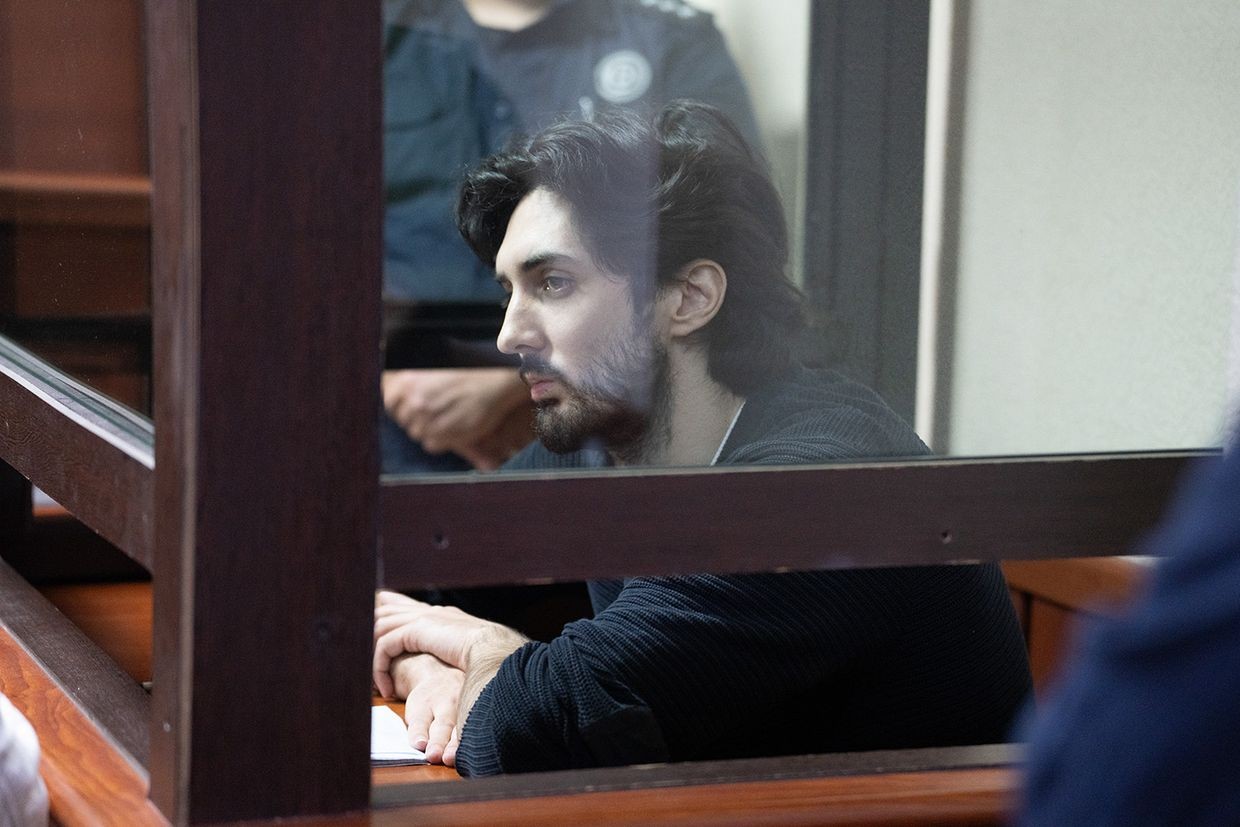Russian activist sentenced to two years in jail in Georgia for ‘damaging police car’ during protests

Tbilisi City Court has sentenced Denis Kulanin, a Russian activist based in Georgia, to two years in jail for ‘damaging a police car’ on 28 March during a protest outside the parliament.
Publika reported that Kulanin’s sentence was announced on 4 June by judge Maia Kokiashvili. According to them, Kulanin pleaded guilty and apologised.
Kulanin was convicted of property damage, which is punishable by a fine or 1–5 years in jail.
‘I did this in a state of affect, I was scared, they started arresting people, I got scared, the first thing I did, I hit the glass, I didn’t expect it to break, when I realised that it broke, I left the area and I apologise for it too’, he said during a hearing on 1 April.
Kulanin was arrested on 31 March after taking part in a protest three days earlier. The protest concerned the parliamentary investigative commission set up by the ruling party to investigate alleged crimes committed by the previous government. On 28 March, ruling party MPs grilled senior military officials involved in the 2008 August War. The head of the commission, MP Tea Tsulukiani, also claimed that Giorgi Antsukhelidze, a soldier killed by Russian soldiers during the war, had been sacrificed for the sake of publicity for former President Mikheil Saakashvili, causing widespread outrage.



Kulanin’s case did not receive significant public attention and his sentencing came as a surprise to many, with the trial concluding in an unusually short period of time compared to others arrested during protests since spring 2024.
Egor Kuroptev, a Russian human rights defender and political activist based in Georgia, told OC Media that this may have been a deliberate decision by Kulanin’s lawyers.
‘In my view, this approach of silence and deliberate “depoliticization” was a strategic mistake. The arrest itself is inherently political, and the Georgian judiciary is fully dependent on the country’s political leadership,’ he said.
‘In a context where Georgian authorities are executing the Kremlin’s will — beating and torturing peaceful protesters, and forcing Russian anti-Putin activists into exile — only maximum public exposure, international media coverage, and a frank, honest framing of the situation can potentially make a difference’, he said.
Kulanin is not the only Russian activist to be arrested since protests in Georgia began. Several others, including Artyom Gribul, Anastasia Zinovkina and Anton Chechin, were also arrested during protests. Unlike Kulanin, the three are charged with possessing drugs, which their lawyers insist were planted on them.
Kurpotev said all four are political prisoners.
‘Not only are the violent dispersals of protests unlawful, but the very elections that left the current regime in power were illegitimate. A regime that has subjected hundreds of individuals to repression and torture cannot be treated as legitimate. Regardless of what Georgia’s courts may “prove”, such verdicts are devoid of legal or moral value’, he said.
Kuroptev said that many Russians remain in Georgia despite the country no longer being safe for anti-kremlin activists, adding that many could not leave due to financial hardships or legal barriers.
‘Many now live in hiding and avoid contact with state institutions, as there have already been several incidents in which Russian anti-Putin activists were detained and coerced — under threat of deportation — into leaving the country where they had lived for years with their families’, he said.
Hundreds of thousands of Russians, including many anti-government activists, fled to Georgia following the fullscale invasion of Ukraine.
Over 50 people arrested during anti-government protests in Georgia are currently behind bars.
Last week, 21-year-old Mate Devidze was sentenced to four years and six months in jail for ‘assaulting police officers’.











